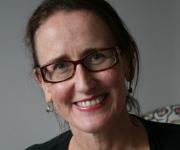THE master of the short story, Anton Chekhov, famously said, “Medicine is my lawful wife and literature my mistress”.
Chekhov’s career as a country doctor in 19th-century Russia provided a wealth of material for his stories and plays, bringing him into contact with people from all classes of Russian society.
Peasants, aristocrats… Chekhov had a particular talent for evoking the misery of his subjects’ lives, regardless of class. He was brilliant, certainly, but not exactly cheerful.
I’ve often wondered why so many doctors harbour a desire to write. Are aspiring writers particularly drawn to medicine, or is there something about medical practice that awakens the storytelling urge?
Certainly, doctors hear a lot of stories in the course of their profession, but they’re hardly alone in that. You could say the same of taxi drivers or hairdressers.
Perhaps the answer lies partly in the hybrid nature of medicine: not just a science, but also at its heart a profession that deals with narrative.
Doctors don’t just make notes; they take a “history”. They construct a story of the patient’s illness, of their life and circumstances; a story that has explanatory, even therapeutic, powers.
Sigmund Freud’s case studies may have fallen out of favour clinically, but they remain among the most powerful pieces of literature I have read.
And it’s not hard to find contemporary examples of fine writing by doctors either, from surgeon Atul Gawande’s articles for The New Yorker to Adelaide GP Peter Goldsworthy’s fiction.
So it’s good to see the MJA and Varuna, the national writers’ retreat in Katoomba NSW, recognising this longstanding link between medicine and literature with a new prize for creative writing by doctors and medical students.
Varuna was the home of Katoomba GP Eric Dark and his wife, Eleanor, a novelist best known for her historical trilogy, The timeless land. The house became a haven for writers after their deaths, thanks to the generosity of their son, Michael.
A great supporter of literature, Dr Dark is said to have stood behind his wife’s chair exhorting her to write (as a writer, I have to say I’m not sure just how welcome that kind of encouragement would be).
His own writings probably don’t rival Chekhov’s, though when his Diathermy in general practice went into a second edition in 1934, his wife told fellow writer Nettie Palmer, “Eric is a far more successful author than I am!”
Prominent in left-wing circles, he also wrote several papers for the MJA during the 1930s and ’40s, including “Medicine and the Social Order” and “Property and Health”.
The winning entries in the MJA Dr Eric Dark creative writing competition will be published in the MJA, and my guess is they’ll probably be a bit livelier than those offerings — as well as something to look forward to in the New Year.
In the meantime, since this is the last issue of MJA InSight for this year, I wish you all a festive season filled with great stories, whether you’re writing them or just regaling family members with them around the dinner table.
Jane McCredie is a Sydney-based science and medicine writer.
Declaration: Jane McCredie is a past recipient of a Varuna fellowship and is a former chair of the Varuna board.
Biographical details about Dr Eric Dark are drawn from the biography by Barbara Brooks, Eleanor Dark: a writer’s life.
Posted 12 December 2011

 more_vert
more_vert